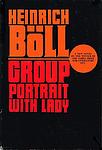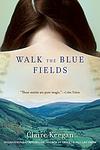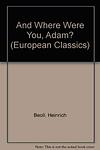Heinrich Böll
Heinrich Böll was a German writer and novelist known for his portrayal of the effects of war on German society. Born on December 21, 1917, in Cologne, Germany, he became one of Germany's foremost post-World War II writers. Böll was awarded the Nobel Prize in Literature in 1972 for his writing, which was often critical of society and politics in West Germany. His works include 'The Clown', 'Group Portrait with Lady', and 'Billiards at Half-Past Nine'. Böll's literature is characterized by its humanism, detailed character portrayal, and its moral messages. He passed away on July 16, 1985.
Books
This list of books are ONLY the books that have been ranked on the lists that are aggregated on this site. This is not a comprehensive list of all books by this author.
-
1. The Lost Honour of Katharina Blum
"The Lost Honour of Katharina Blum" is a story about a young woman who becomes the target of a media smear campaign after she falls in love with a man who is suspected of being a political radical. The media's relentless invasion of her privacy and the negative portrayal of her character lead to tragic consequences, highlighting the destructive power of sensationalist journalism. The novel is also a critique of the political climate in Germany during the 1970s.
-
2. Billiards at Half-Past Nine
The novel follows the story of the Faehmel family, spanning three generations, in post-war Germany, focusing on the impact of war and the struggle with the country's Nazi past. The narrative centers around Robert Faehmel, an architect who refuses to build anything after World War II, his father, a World War I veteran, and his son, who is trying to make sense of his family's past. The story is told non-linearly, with the characters' memories, dreams, and perceptions revealing the devastating effects of the two World Wars on the family and the country.
-
3. The Clown
Set in post-World War II Germany, the novel follows the life of a professional clown who is in a personal crisis after being left by his long-term girlfriend. The protagonist, who is unable to find work due to his political views, spends a day reflecting on his life, his broken relationship, and the harsh realities of the society around him. The narrative offers a stark critique of Catholicism and the economic miracle in post-war Germany.
-
4. Group Portrait with Lady
This novel delves into the life of Leni Pfeiffer, a resilient woman surviving in post-World War II Germany. Through the eyes of an unnamed narrator, the story unravels Leni's life, her relationships, and the socio-political climate of the time. The narrative is presented as a group portrait, with each chapter focusing on different characters who have been part of Leni's life, highlighting the hardships and resilience of everyday people in the aftermath of war.
-
5. The Collected Stories of Heinrich Boll
This collection of stories provides a comprehensive view of post-World War II Germany and its people through the lens of a renowned author. The narratives, filled with irony, humor, and profound compassion, delve into the lives of ordinary individuals, exploring themes of war, poverty, and moral dilemmas. The author's keen observation and poignant storytelling offer a rich portrayal of human nature and the complexities of society in a changing world.
-
6. And where Were You, Adam?
This novel is a collection of interconnected short stories set during World War II, providing a vivid portrayal of the human costs of war. The narrative follows various characters including soldiers, civilians, and victims of war, each offering different perspectives on the realities of war. It explores themes of loss, survival, and the moral ambiguities of war, highlighting the author's anti-war sentiments.





